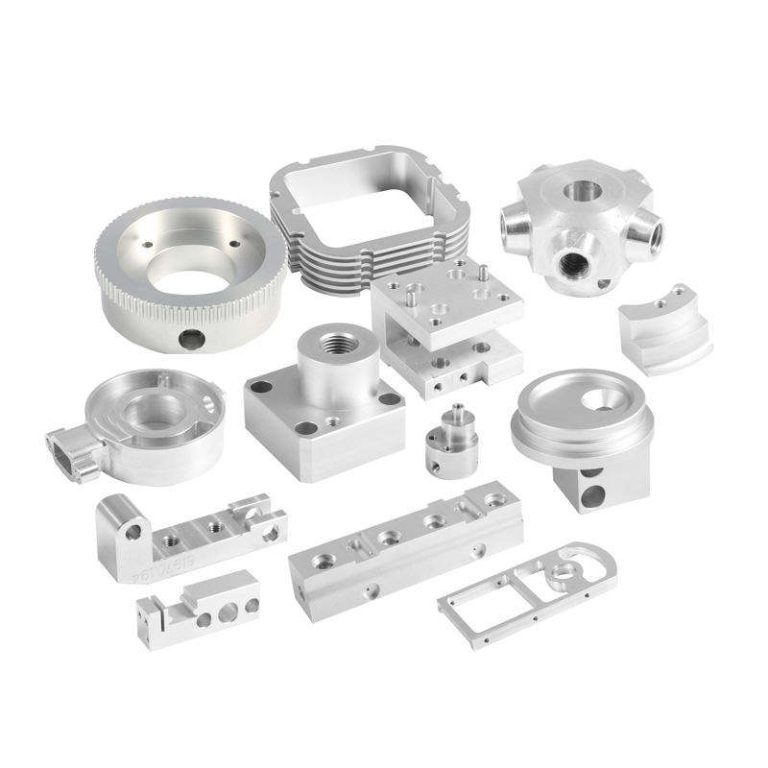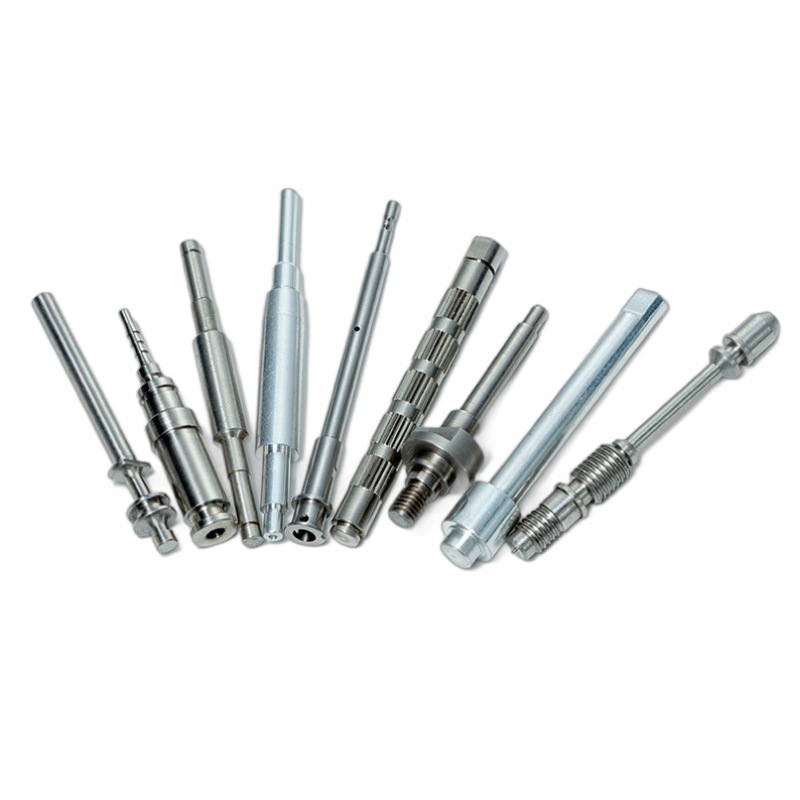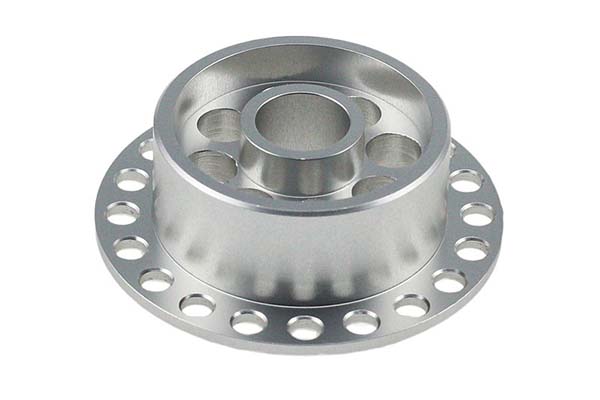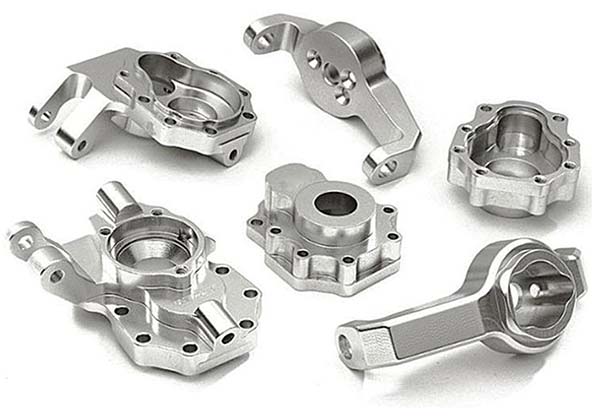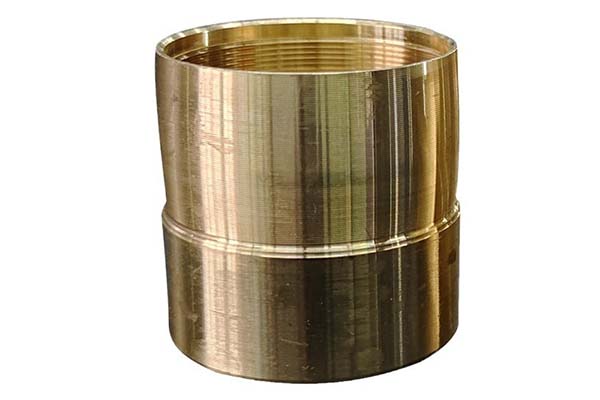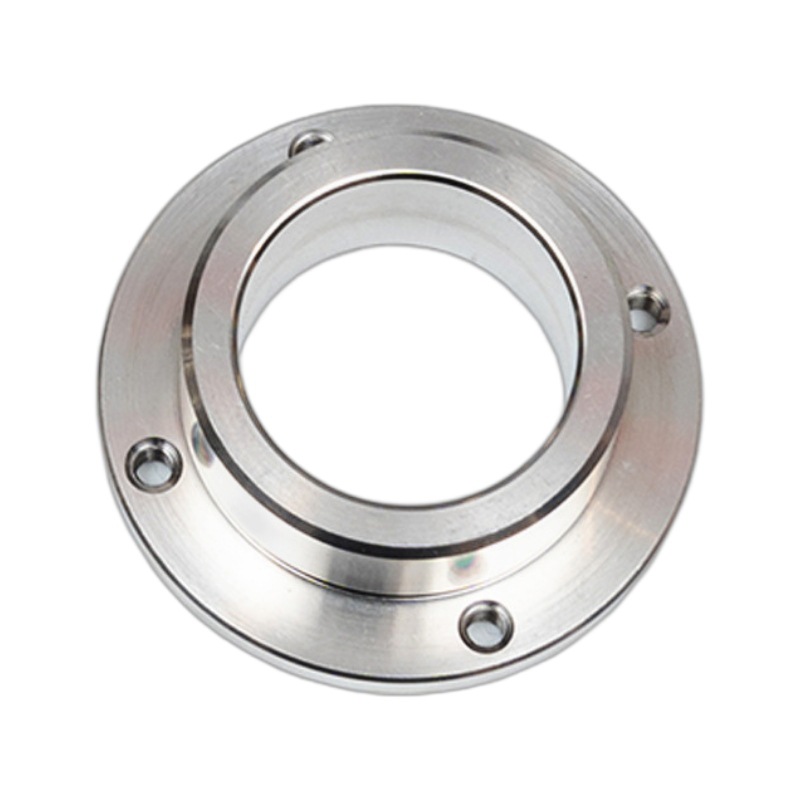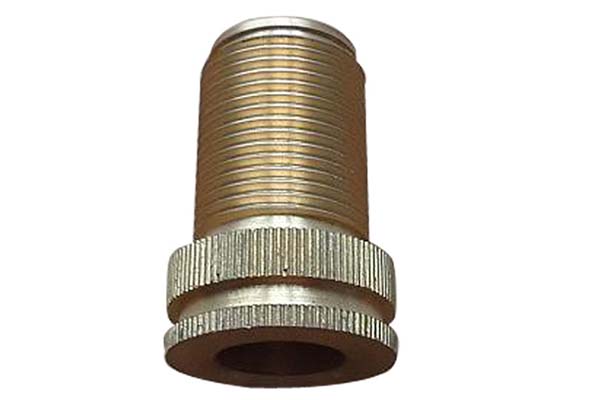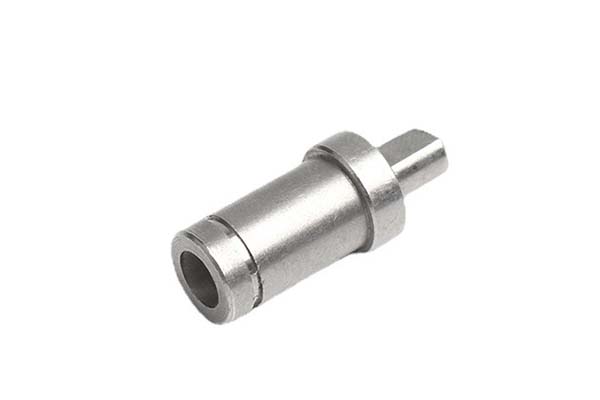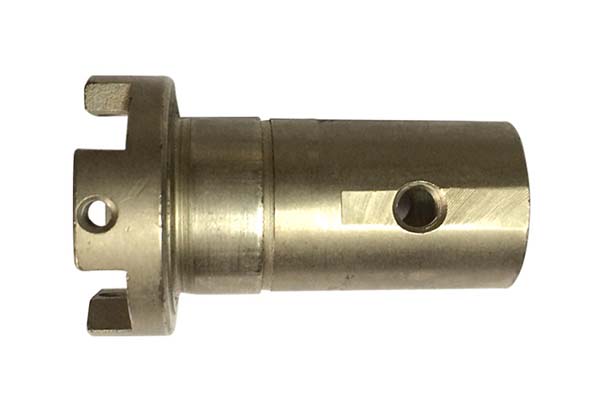Understanding the Significance of Precision Machining Parts
Precision machining parts are the unsung heroes of modern manufacturing, playing a pivotal role in ensuring the functionality, reliability, and performance of a vast array of products across diverse industries. In today's highly competitive global market, the demand for high - quality, precisely engineered components has never been greater.
In the Aerospace Industry
Take the aerospace industry, for example. Aircraft engines are marvels of modern engineering, and their performance hinges on the precision of countless individual parts. The turbine blades in an aircraft engine, for instance, must be manufactured with extreme precision. These blades operate in an environment of extreme heat and high rotational speeds. A deviation of even a fraction of a millimeter in their shape or dimensions can lead to a significant reduction in engine efficiency, increased fuel consumption, and potentially, catastrophic failure. According to industry statistics, a 1% improvement in the precision of turbine blade manufacturing can lead to a 3 - 5% increase in engine efficiency. In addition, components in the avionics systems, such as the intricate circuit boards and sensors, require precision machining to ensure accurate navigation, communication, and flight control. Any inaccuracies in these parts could compromise the safety of the entire flight.
In the Medical Field
In the medical field, the importance of precision machining parts is equally pronounced. Implants, such as hip and knee replacements, need to be manufactured with utmost precision to fit the patient's anatomy perfectly. A poorly fitting implant can cause discomfort, inflammation, and may even require revision surgery. For example, in dental implants, the precision of the screw - like components that anchor the implant in the jawbone is crucial. A deviation in the thread pitch or diameter can lead to a weak connection, implant failure, and a poor outcome for the patient. Moreover, surgical instruments like microsurgical forceps and scalpels are made from precision - machined parts. These instruments need to be extremely sharp and have precise dimensions to perform delicate procedures, such as neurosurgery or ophthalmic surgery, where even the slightest error can have life - altering consequences for the patient.
Key Factors to Consider
Reputation and Experience
When evaluating a precision machining parts supplier, reputation and experience are two fundamental aspects. Start by looking at the supplier's online presence. Check for customer reviews and testimonials on their official website, industry - specific forums, and business review platforms like Yelp or Google Reviews. A supplier with a high number of positive reviews and a long - standing presence in the market is likely to be reliable. For example, a precision machining parts supplier that has been operating for over 20 years and has successfully completed hundreds of projects for well - known companies in the automotive and electronics industries is more likely to have the necessary skills and expertise. They have likely encountered and overcome various challenges over the years, which gives them an edge in handling complex machining tasks.
Quality Assurance
Quality assurance is non - negotiable when choosing a precision machining parts supplier. One of the key indicators of a supplier's commitment to quality is the possession of relevant quality certifications. ISO 9001, for instance, is an internationally recognized standard that outlines requirements for a quality management system. A supplier with ISO 9001 certification has demonstrated its ability to consistently provide products and services that meet customer and regulatory requirements. Additionally, the use of advanced inspection equipment is crucial. Suppliers should employ tools such as coordinate measuring machines (CMMs), which can measure the dimensions of a part with extremely high accuracy, often down to micrometers. A strict quality control process should also be in place, involving inspections at every stage of the production process, from raw material incoming inspection to final product inspection before shipment.
Technical Capabilities
The technical capabilities of a precision machining parts supplier are directly related to the quality and complexity of the parts they can produce. High - end machining equipment is a must - have. For example, a five - axis machining center allows for the simultaneous movement of five axes (X, Y, Z, A, and B or C), enabling the machining of complex geometries in a single setup. This not only improves the accuracy of the parts but also reduces the need for multiple setups, which can introduce errors. In the production of aerospace components with intricate shapes, a five - axis machining center can ensure that the parts meet the tight tolerances required. Moreover, the expertise of the supplier's technical team is equally important. A team of experienced engineers and machinists who are well - versed in the latest machining techniques and software can solve complex technical problems and optimize the machining process for better efficiency and quality.
Cost - effectiveness
While cost is an important factor, it should not be the sole determinant when choosing a precision machining parts supplier. A low - price offer may seem attractive at first glance, but it could come at the expense of quality or lead to delays in delivery. Instead, consider the overall cost - effectiveness. Calculate the unit cost of the parts, taking into account factors such as the quality of the materials used, the complexity of the machining process, and any additional services provided by the supplier. For long - term projects, also consider the cost of long - term cooperation, such as the potential for volume discounts, the stability of prices over time, and the cost of any post - production support or warranty services. A supplier that offers a balance between reasonable prices, high - quality products, and on - time delivery is the ideal choice.
Delivery Time and Flexibility
Timely delivery is crucial for any production process. A delay in receiving precision machining parts can disrupt the entire production schedule, leading to increased costs and missed deadlines. When evaluating a supplier, inquire about their average delivery times and their track record of meeting deadlines. For example, if a supplier has a history of delivering 95% of their orders within the promised time frame, it indicates their reliability. Additionally, flexibility is another important aspect. A good supplier should be able to handle urgent orders or changes in order quantities without major disruptions. Some suppliers may have the ability to prioritize urgent orders by adjusting their production schedules or having additional capacity on standby, ensuring that their customers' needs are met even in time - sensitive situations.
Comparing Different Suppliers: A Tabular Analysis
To better illustrate how these factors play out in real - world scenarios, let's compare three hypothetical precision machining parts suppliers in a tabular format:
| Factors | Supplier A | Supplier B | Supplier C |
| Reputation and Experience | Operating for 25 years.Over 500 completed projects.Positive reviews from major automotive companies like Ford and GM. | 10 - year history.200 completed projects.Mixed reviews on industry forums, but positive feedback from some small - scale electronics firms. | 5 - year startup.50 completed projects.Limited online presence and few reviews. |
| Quality Assurance | ISO 9001 and AS9100 certified (the latter is for aerospace quality management).Equipped with multiple CMMs with an accuracy of ±0.001mm.Inspection at every production stage. | ISO 9001 certified.Single CMM with an accuracy of ±0.01mm.Inspections mainly at the final production stage. | No quality certifications yet.Relies on basic measuring tools, no CMM.Minimal inspection process. |
| Technical Capabilities | Five - axis machining centers, high - speed CNC lathes, and EDM machines.Engineering team with an average of 15 years of experience.Successfully produced complex aerospace components with tight tolerances. | Three - axis machining centers and standard CNC lathes.Engineering team with an average of 8 years of experience.Mainly produces simple to moderately complex parts for consumer electronics. | Two - axis machining centers and basic lathes.Mostly junior - level engineers with less than 3 years of experience.Produces basic mechanical parts with loose tolerances. |
| Cost - effectiveness | Competitive unit prices considering quality.Volume discounts for orders over 1000 units.Stable prices over the past 5 years. | Lower unit prices initially, but may increase for complex parts.No clear volume discount policy.Prices have fluctuated in the past 2 years. | Lowest unit prices, but quality issues may lead to rework costs.No volume discounts.Potential for price hikes due to inexperience in cost management. |
| Delivery Time and Flexibility | Average delivery time of 2 - 3 weeks for standard orders.Meets deadlines 98% of the time.Can handle urgent orders with a 50% surcharge and a 1 - week delivery time. | Average delivery time of 3 - 4 weeks for standard orders.Meets deadlines 90% of the time.Limited ability to handle urgent orders, may take an additional 2 - 3 weeks. | Average delivery time of 4 - 6 weeks for standard orders.Meets deadlines 80% of the time.No capacity to handle urgent orders currently. |
As shown in the table, Supplier A clearly stands out in terms of overall capabilities, with a long - standing reputation, high - end quality assurance measures, advanced technical capabilities, reasonable cost - effectiveness, and reliable delivery times. Supplier B offers a balance between cost and quality but has some limitations in technical capabilities and delivery flexibility. Supplier C, being a new entrant, has significant room for improvement in all aspects and may be more suitable for projects with less strict requirements.
Yigu Technology's Insights
As a non - standard plastic and metal products custom Supplier, Yigu Technology understands the criticality of choosing the right precision machining parts supplier. For us, quality control is the cornerstone of our operations. We have implemented a strict quality management system that goes beyond industry standards, ensuring that every part leaving our facility meets the highest precision requirements.
Our technical innovation is another area of strength. We invest heavily in research and development, constantly exploring new machining techniques and materials to better serve our customers. By staying at the forefront of technology, we can offer customized solutions that are not only precise but also cost - effective and efficient. When selecting a supplier, we recommend looking for those with a similar commitment to quality and innovation, as this ensures long - term success in any project.
FAQs
Q1: How can I verify the quality of a precision machining parts supplier?
You can verify the quality of a precision machining parts supplier in several ways. First, check if they have relevant quality certifications like ISO 9001 or industry - specific certifications such as AS9100 for aerospace parts. Second, conduct a factory visit if possible. Observe their production processes, the condition of their equipment, and how they handle quality control. Third, ask for inspection and test reports of their previous projects. These reports can provide detailed information about the dimensions, material properties, and surface finish of the parts they produced, ensuring they meet the required quality standards.
Q2: What if the supplier fails to meet the delivery time?
To address the issue of a supplier failing to meet the delivery time, it's crucial to include clear penalty clauses in the contract. For example, specify a certain percentage of the order value as a penalty for each day of delay. Additionally, maintain regular communication with the supplier during the production process. Request progress reports at key milestones, such as the start of production, the halfway point, and before the final inspection. This way, you can identify potential delays in advance and work with the supplier to find solutions, such as adjusting the production schedule or prioritizing your order.
Q3: Is it necessary to choose a local precision machining parts supplier?
Choosing a local precision machining parts supplier has both advantages and disadvantages. The advantages of a local supplier include easier communication due to the same time zone and language, which can lead to faster response times for inquiries and issues. Shorter delivery times can also reduce lead times and inventory costs. However, local suppliers may have a more limited range of capabilities or higher costs compared to international suppliers. International suppliers, especially those from regions known for advanced manufacturing like some parts of Asia or Europe, may offer lower costs due to economies of scale or more advanced technology. But they may also come with higher communication and logistics costs, and potential risks associated with international shipping, such as customs delays. So, it's not always necessary to choose a local supplier. It depends on your specific requirements, such as the urgency of the order, the complexity of the parts, and your budget.
